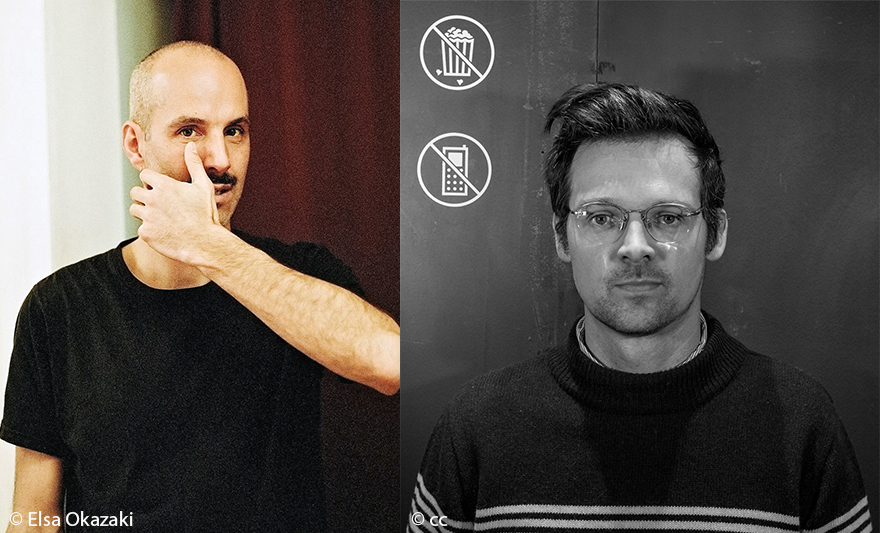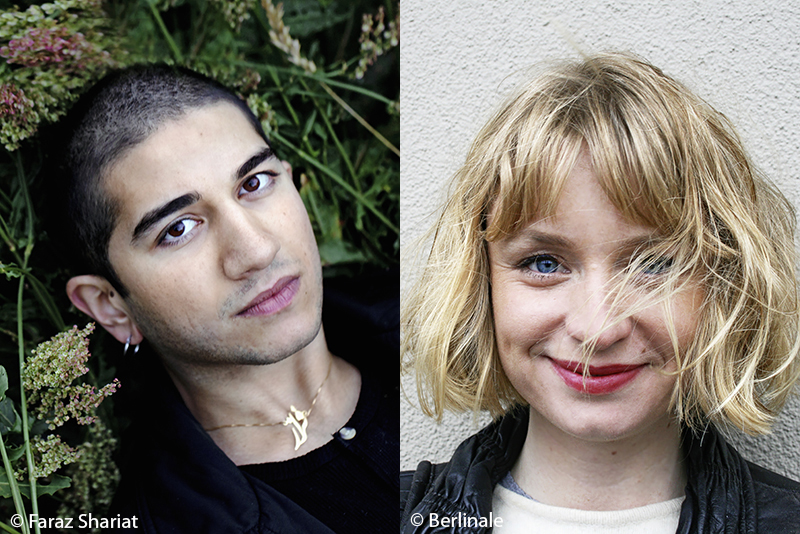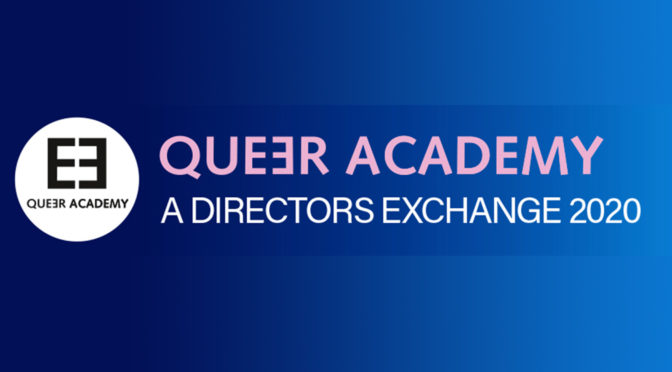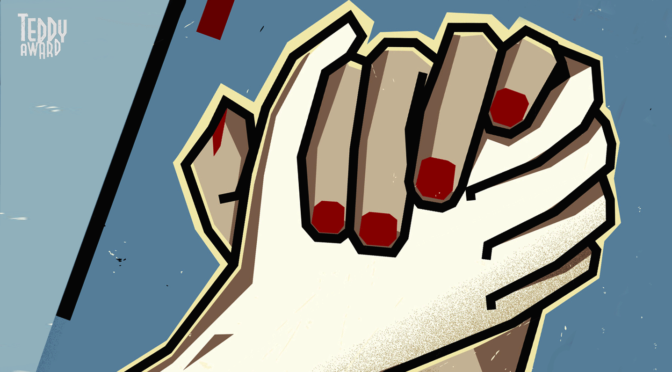The TEDDY AWARD and the award donator HARALD CHRIST, entrepreneur and longtime TEDDY supporter, will present the TEDDY ACTIVIST AWARD for the first time this year. The award includes a donation of 5.000 € and will be presented annually in the future in the scope of the TEDDY AWARD ceremony.
Inspired by the work and courage of so many activists who fight for the ongoing struggle of sexual and gender minorities all over the world, the TEDDY ACTIVIST AWARD honours people who work for change under difficult circumstances and in a non-supportive political and social environment and thus contribute to tolerance, acceptance, justice and equality in the world. In many parts of the world, this means putting oneself and the people around you at risk and exposing oneself to rejection, marginalization, isolation and persecution. The award is intended to honour the courage and determination of these people.
The TEDDY ACTIVIST AWARD 2020 goes to a group of activists who, at risk to their own lives, courageously and resolutely save and rescue persecuted homosexuals and transsexuals in Chechnya from imprisonment, torture and murder and bring them to safety. The TEDDY and Harald Christ pay tribute to these courageous people with deep respect and hope that this prize will help to ensure that the continuing silence and look away of the so-called “free world” finally turns into a worldwide outcry of indignation and that the perpetrators are ostracized and held accountable by the world community.
The Gay Pogrom in Chechnya:
On April 1, 2017, the Novaya Gazeta, an independent Russian newspaper, reported that government security officials were abducting, detaining, and torturing gay men in Chechnya, demanding that these men divulge the names of other gays whom they would then abduct, detain, and torture as well. Chechnya’s President Ramzan Kadyrov has openly described the goal of this campaign as an effort “to cleanse our blood.” He has called upon family members to carry out so-called “honor killings.”
There are no estimates of the number of the dead. Hundreds of Chechens have simply disappeared since the atrocities began, and hundreds more have escaped.
Leaders of the St. Petersburg-based Russian LGBTQI* Network established a hotline in the early days of the pogrom. They set up a series of secret safe-houses throughout the country, in partnership with other LGBTQI* organizations, especially The Moscow Community Center for LGBT+ Initiatives.
In the first two years, they moved 151 people out of the Chechnya and beyond the Russian border. Countries receiving them include Canada, Germany, France, Norway, Belgium, the Netherlands, Argentina, and elsewhere. The US government rejected all applicants stemming from the pogrom.
Response from Chechen Leadership:
Ramzan Kadyrov immediately denied the accusations when they first surfaced, calling them “lies.” What’s more, he says it is impossible to carry out such crimes because they “don’t have that kind of people here. We don’t have gays.” Despite these statements, Kadyrov has publicly endorsed so-called “honor killings,” urging families to murder relatives suspected of being gay, lesbian, or transgender. His press secretary stated: “If there were such people in Chechnya, the law-enforcement agencies wouldn’t need to have anything to do with them because their relatives would send them to a place of no return.” Those who commit such murders face no criminal ramifications. Russian President Vladimir Putin accepted Kadyrov’s denials. Yet under pressure from international leaders, Putin briefly moved forward with a widely criticized investigation, which found no witnesses and victims willing to give testimony, fearing retribution. The Kremlin claimed the lack of testimony was proof that no human rights abuses had occurred.
Lesbians and Transgender Women and Men are Also Targeted:
Although much of the reporting on this subject has focused on gay men, Chechen lesbians and transgender women have reported similar treatment. Survivors have commonly spoken about forced religious exorcisms and involuntary commitments to psychiatric hospitals, as well as torture and detention. Evidence has also surfaced of so-called “honor killings” of lesbians.
Women have little autonomy in Chechnya’s interpretation of Islam. Male family members generally accompany them when they are outside of their homes, making their efforts to escape to safety even more difficult — and dangerous — than for men.
The Victims are Being Hunted Around the World:
Since the operational goal of Kadyrov’s government is the elimination from the Chechen bloodline of LGBTQI people, fleeing the country doesn’t give victims safety. Authorities pressure Chechen families to hunt them down and return them for execution. And their reach is surprisingly far. There is a vast global diaspora of people who fled during the two Chechnya wars.
In November 2019, officials called upon diaspora members to enforce Chechen mores wherever they live. In remarks widely seen as referring to gay people, Kadyrov’s right-hand man said: “I’m telling you, those who live in Europe, America and Canada: Stop such people! By law, with our traditions and customs, we should resolve their problem,” said Adam Delimkhanov. “We implore you, don’t let them embarrass the honor of our nation.” There have been cases of Chechens being tricked into returning or being forced in their new country to record denials of their homosexuality. Some have been attacked in their host countries.
It’s Not a Good Time to be Gay in Much of the World:
The persecution of gay people is not exclusive to Chechnya. According to ILGA-Europe, there are 70 countries worldwide where being gay is criminalized, including 11 countries where the death penalty could be imposed.
However, what is happening in Chechnya is categorically different. It is the only government since Nazi Germany to round up LGBTQI people for extermination.
ADDITIONAL RESOURCES
Masha Gessen, “The Gay Men Who Fled Chechnya’s Purge, New Yorker, July 3, 2017 https://www.newyorker.com/magazine/2017/07/03/the-gay-men-who-fled-chechnyas-purge
Masha Gessen, “Fleeing Anti-Gay Persecution in Chechnya, Three Young Women Are Now Stuck in Place,” New Yorker, October 1, 2018 https://www.newyorker.com/news/our-columnists/fleeing-anti-gay-persecution-in-chechnya-three-young-women-are-now-stuck-in-place
“They Have Long Arms and They Can Find Me: Anti-Gay Purge by Local Authorities in Russia’s Chechen Republic,” A Human Rights Watch Report, May 26, 2017 https://www.hrw.org/report/2017/05/26/they-have-long-arms-and-they-can-find-me/anti-gay-purge-local-authorities-russias
“Honor Kill: How the Ambitions of a Famous LGBT Activist Awoke a Terrible Ancient Custom in Chechnya, Elena Milashina,” Novaya Gazetta, April 1, 2017 https://novayagazeta.ru/articles/2017/04/01/71983-ubiystvo-chesti
“Novaya Gazetta Learned of New Gay Persecution in Chechnya,” Novaya Gazetta, January 11, 2019 https://novayagazeta.ru/news/2019/01/11/148260-chechnya
ILGA Europe, “Sexual Orientation Laws in the World, 2019” https://ilga.org/downloads/ILGA_Sexual_Orientation_Laws_Map_2019.pdf



